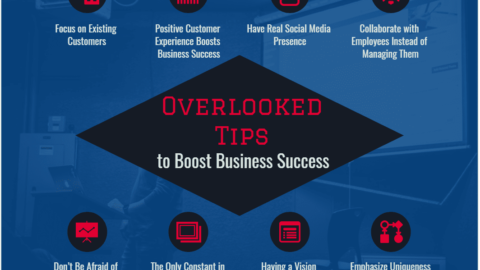What Is Enterprise Mobile App Development?
The process of designing software applications that assist businesses in streamlining their operations, automating their procedures, and increasing their overall efficiency is referred to as business application development or enterprise mobile app development. These applications are developed to fulfill the special requirements of a company or corporation. These are more complex than apps that are toward individual consumers.
Table of Contents
Understanding the Business App Development:
The process of designing scalable applications that assist businesses in streamlining their operational procedures is referred to as enterprise app development. Among other things, enterprise mobility management may assist with:
- Maintain the most recent version of firm data across all systems;
- Direct company divisions toward shared objectives; save costs associated with handoffs between departments;
- Assist management in making choices that are informed by data.
- Have a single location where all of the company’s procedures can be managed.
Advantages of Developing an Enterprise Mobile App
There are four primary advantages that a business may obtain from using enterprise apps.
- Enterprise mobile apps make it possible for information to be shared between different departments within a company, cutting down on the amount of time employees have to spend looking for the information they require.
- Enterprise mobile applications can simplify workflows that include data or activity from several different software applications by automating such processes.
- Enterprise mobile apps simplify the process through which businesses implement new technologies. They provide a single, intuitive user interface that contains all of the information and functionality of the combined programs.
- Enterprise apps make it possible for companies to detect and respond to new possibilities more expediently.
Types of Business Mobile App Development
Management applications for businesses have quickly become one of the most important subcategories of software applications. Nevertheless, this is a quite broad definition, as it encompasses the use of process management software in a variety of contexts. For instance, HR, ERP, and CRM are some of the domains in which management applications might be useful.
Applications for enterprise resource planning (ERP) are used extensively by corporations.
ERP software allows for the management and integration of all aspects of a business inside a single application. There are a variety of procedures that fall within this category, including planning, cost control, planning, sales, marketing, acquiring inventory, and so on.
HR management applications.
The human resources (HR) department is responsible for one of the greatest portions of a company’s overall values and procedures. The people and the ideals of a firm are of the utmost importance to its continued existence. However, underlying every successful business culture is a set of procedures, timelines, and activities that are followed to the letter. Apps like Zoho People, WorkBright, Clear Company, and WorkStyle assist ease the work of HR departments that have several layers of responsibilities.
Business management applications.
Increasing a company’s overall productivity is often the goal of the development of this kind of software. For instance, applications such as Promapp, and Nintex can integrate into the architecture of the organization while simultaneously enhancing the workflow from the perspective point.
Customer Relationship Management, sometimes known as CRMs, are pieces of software that enable businesses to maintain contact with both current and prospective clients.
When it comes to the creation and modification of digital information, as well as general workflow, content management systems (CMS) are very necessary.
How to Create a Business or an Enterprise Mobile App:
Because of its complexity and stringency, the procedure calls for a greater degree of knowledge and experience from its participants. In this tutorial, we will lead you through the fundamental processes and procedures for developing an enterprise app that will make a positive impact on the success of your company.
- Clearly defining the business needs that the enterprise app will serve is the first stage in developing the app. This phase is the starting point for designing an enterprise app. This requires doing an in-depth review of the processes of the company. And locating the areas in which the application of technology may give the most substantial benefits.
- It is critical to include important stakeholders in this process, like management, employees, and consumers, among other relevant groups. This will assist ensure that the app will satisfy the requirements of every user, as well as that it will be successful for adoption.
- The following stage, which is to design the app, occurs once the business requirements are clear in the previous step. Creating in-depth specs for the app’s features, functioning, and user experience is a necessary step here.
- It is of the utmost importance that the app can offer scalability. The application must have the capacity to process massive volumes of data. It should also support several users at once. And be able to interface with a variety of different platforms and systems.
Developing and Deploying the Enterprise Mobile App
After the completion of the design phase during enterprise mobile app development, the next stage is to work on developing the app itself. Typically, this belongs to a group of developers that have prior expertise working with the applicable technologies and platforms.
It is imperative to make use of the most recent technologies and frameworks to guarantee that the application is safe, dependable, and runs efficiently. Additionally, the application should have stringent testing to guarantee that it is error- and bug-free and that it complies with all of the requirements.
The next step is to deploy the app after testing. At this point, the app is ready to operate. In most cases, this requires putting the application on servers and configuring it. So that it is compatible with the organization’s already existing software and hardware platforms.
It is necessary to have a strategy in place for maintaining and upgrading the app. This is including protocols for managing security patches, software upgrades, and bug fixes. Having this plan in place is crucial.
Conclusion
Developing an enterprise mobile app is a process that is not only difficult but also demanding. And it calls for a high degree of skill and experience. You will be able to ensure that your app will fulfill the requirements of your company. And contributes to its success if you follow the main procedures and practices.
Writing, researching, and learning about project management and tech.










